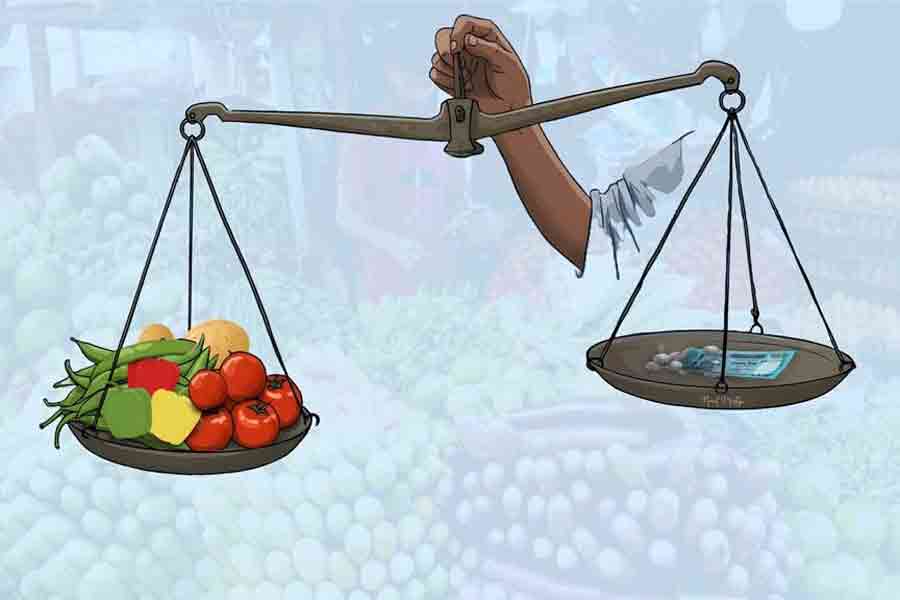
Published :
Updated :

Just when it seemed the worst of the inflationary storm might be passing, official data confirm that price pressures are rising again. After three consecutive months of moderate decline aided by strong agricultural output, inflation in Bangladesh has reversed course. The Bangladesh Bureau of Statistics reports that the point-to-point inflation rate in July increased to 8.55 per cent, slightly higher than June's 8.48 per cent. This renewed increase is occurring despite the continuation of a contractionary monetary policy aimed at curbing inflation. In an economy where a large informal sector limits the reach of formal policy tools, the impact of such monetary measures may fall short and the recent uptick in inflation is a telling sign of that limitation. The government had set a target of bringing average inflation down to 6.5 percent within this financial year, but with prices rebounding earlier than expected, meeting that goal now looks increasingly doubtful.
Particularly troubling is the rise in food inflation, which increased to 7.56 per cent in July from 7.39 per cent in June, putting added pressure on household budgets and kitchen markets across the country. Urban residents are struggling more than their rural counterparts, with overall inflation in cities reaching 8.95 per cent compared to 8.55 per cent rural areas. Non-food inflation remained also stubbornly high, standing at 9.55 percent in urban areas and slightly higher at 9.73 percent in rural regions. The previous three-month decline in inflation was largely attributed to abundant agricultural harvests. The fact that food prices are rising despite these harvests suggests that the issue lies more with supply distribution than with supply availability. The persistently high non-food inflation also points to the supply-side constraints and production inefficiencies as significant factors for the current situation.
For average Bangladeshis, particularly low-and-middle-income families, higher prices are bad news because they reduce real income and make people poorer. Although the Wage Rate Index (WRI) increased slightly to 8.19 per cent, wages still fail to keep pace with inflation. Without effective intervention, this trend could exacerbate inequality and fuel social discontent. Conventional inflation-control measures like tightening money supply and raising interest rates are proving less effective because when the root causes are supply-side barriers, monetary policy alone is insufficient. These barriers such as disruptions in food distribution, soaring import costs and market inefficiencies require broader interventions. The upcoming national elections present additional inflationary risks, as anticipated increases in campaign spending are likely to expand money supply, potentially pushing inflation even higher.
To rein in inflation, the government must prioritise stabilising food prices given their outsized role in this crisis. This requires strengthening agricultural supply chains through targeted investments in storage facilities, transportation infrastructure and improved market linkages to ensure consistent flow of goods across regions. However, even when supplies are sufficient, market intermediaries can exploit consumers by charging excessive margins in the absence of proper oversight. This is why stricter enforcement against market manipulation and hoarding, along with digital price tracking, is crucial to curb unfair practices. There is also a pressing need for a strategic reserve system for essential imports such as food and fuel that can be used as buffer against sudden price shocks. The recent rise in inflation is a clear warning that complacency is not an option. Policymakers must respond with a clear and coordinated plan. Failure to do so will not only allow prices to rise further and undermine inflation control efforts, but also intensify economic hardship for millions.


 For all latest news, follow The Financial Express Google News channel.
For all latest news, follow The Financial Express Google News channel.